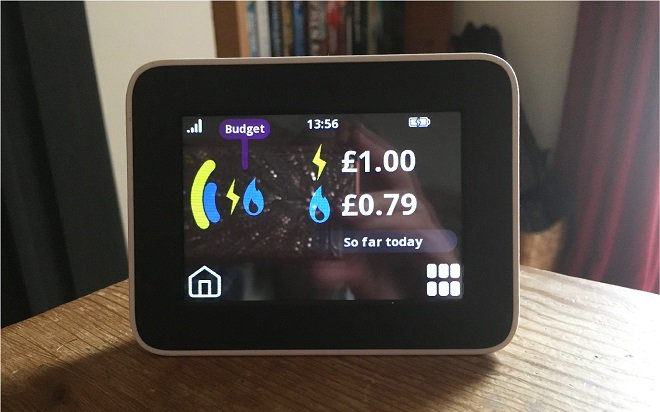Buckinghamshire Council is working with local communities to tackle the impact of climate change in Buckinghamshire. We’re aiming for net zero carbon emissions by 2050 at the latest. Help us to achieve this goal and protect our planet for ourselves, our families, and our future generations.
What is the Bucks Climate Challenge?

Working together to combat climate change
Bucks’ Climate Challenge is all about working together to reach net zero carbon emissions in Buckinghamshire, to reduce the impact of climate change. Read more about what the council has done in the last year to reduce carbon emissions.
Climate change is already affecting everyone, with sea levels rising, our summers becoming hotter and drier and our winters getting wetter. Residents in Buckinghamshire tell us they are already experiencing the effects of climate change and want to do something about it.
The cause of climate change is an increase in the amount of (greenhouse) gases in our atmosphere, such as carbon dioxide, that trap heat from the Sun. This is causing our planet to warm up and the ice at the caps to melt. The increase in greenhouse gases is caused by human activity.
Reaching net zero carbon emissions means taking as much carbon out of the atmosphere as we put into it.
There are many ways in which we can all reduce our carbon emissions and improve air quality; from using the car less to planting more trees. Even small changes to our lifestyle can have a big environmental impact.
Buckinghamshire Council has a Climate Change and Air Quality Strategy which details how we are working towards making Buckinghamshire carbon neutral by 2050 and ensuring that concentrations of air pollutants are at safe levels.
We will reduce our emissions by 75% by 2030, compared to our 1990 baseline, on the way to achieving net zero no later than 2050.
What is Buckinghamshire Council doing?
Third annual progress report on the Climate Change and Air Quality Strategy
It’s been another twelve months of fantastic progress on our ambitious Climate Change and Air Quality strategy. View our 2023 to 2024 progress report.
This strategy was adopted by the council in 2021, when we set bold targets to reduce carbon emissions by at least 75% by 2030 and 90% by 2040. These targets are set against our 1990 emission levels.
This year we have:
- achieved a 78% reduction in our net emissions for 2023/24 compared to our baseline emissions from 1990
- installed solar PV and battery storage at four of our sites, reducing emissions and our energy costs for those properties
- continued our tree planting mission; following a successful bid to the Forestry Commission’s Local Authority Treescapes Fund secured over £264,000 of funding and planted a further five ‘Tiny Forests’ on Council land, at sites in;
- Hamilton Academy, Wycombe
- Booker Park Recreational Ground, Wycombe
- Totteridge Park, Wycombe
- Cannock Road., Aylesbury
- Walton Court, Aylesbury
We are continuing the de-carbonisation of the Council’s estate which is a fundamental part of our journey to net zero. This year’s project to install solar PV and battery storage across four of our sites has been a huge success with the panels installed in time for the summer.
We have a new electric vehicle in operation at Black Park Country Park and our Highways Team has six new electric vehicles.
Transport remains the biggest source of emissions in Buckinghamshire, followed by domestic sources. These are areas where residents can make a big difference, by embracing alternative means of travel such as walking, cycling, using public transport or simply making fewer journeys by car.
We have implemented four separate initiatives to help residents with their energy bills; the Home Upgrade Grant 2, Energy Doctor scheme and the DEBEE grant all offer no cost upgrades and advice to reduce energy bills and their associated emissions.
The second round of Solar Together has seen almost 600 residents accept offers for solar PV on their rooftops to reduce their own energy bills.
As of 5 September 2024, over 800 visits have been made by the Energy Doctors and it’s estimated that by March ‘25 the scheme will reduce carbon emissions in the area by 300 tonnes per year. It’s estimated that the visits made so far are helping people save over £120 on their energy bills per year on average.
We are also committed to sustainable travel and are launching greener ways to get around Buckinghamshire by:
- developing a council-wide Local Cycling and Walking Infrastructure Plan (LCWIP) that will outline a high-level walking, cycling and wheeling network across Buckinghamshire . Public consultation on the LCWIP took place from September to October 2024. The LCWIP will provide an evidence base for the forthcoming Local Transport Plan 5 and Local Plan for Buckinghamshire, and ultimately result in greater opportunities for people to choose to travel actively in Buckinghamshire.
- supporting schools to encourage active travel with initiatives such as the Modeshift STARS – Buckinghamshire Council has again come second in the Modeshift STARS league table, with 72 accredited schools across the County
- launching a second on-demand bus service in and around Aylesbury, called Village Connect
Read the Climate Change and Air Quality Progress Report 2023 to 2024
Read our report on progress we've made on the aims and objectives set out in the Climate Change and Air Quality Strategy.
Read the report nowHow can I get involved?
There are so many ways you can help by reducing your own carbon emissions.
Our top three tips for doing something that will make the biggest difference:
1. Ditch the car and walk, wheel, cycle or use public transport instead
Not only will your health thank you, but you’ll be doing your bit to reduce pollution and carbon emissions. There are e-bike and e-scooter trials in parts of the county, and the PickMeUp on-demand minibus service around High Wycombe. Plus, download the Better Points app to be rewarded for walking, wheeling, and taking the bus. Find out more about travelling sustainably, including walking and cycling routes.

2. Reduce the amount of food you throw away
Did you know that the average family of four could save £60 a month by reducing food waste? Buckinghamshire homes produce enough food waste to fill 250,000 wheelie bins a year – a staggering 30,000 tonnes! Check out our toolkit to help you reduce food waste. Help reduce carbon emissions and save money, win-win!
And if you’re struggling to afford food, find out more about the help available to buy or access food on our website. Alternatively, if you have food going spare, do see if there’s a community fridge local to you.

3. Turn your heating down
The World Health Organisation suggests 18 degrees Celsius (64.4° Fahrenheit) is the optimum temperature for healthy and well-dressed people to keep their homes at, rising to 20°C for the old, young, or unwell.
An average home could save around £130 for each 1°C decrease in thermostat temperature between 22°C and 18°C. And if everyone in the UK turned their thermostat down by 1°C, an enormous 3.5 million tonnes of carbon dioxide (CO2) would be saved per year.
If you’re feeling the pinch when it comes to affording heating, visit our help with heating and household bills and saving energy in your home pages on our website. There’s also a useful tool from the government that gives you specific recommendations on how to make your home more energy efficient.
And don’t forget about Welcoming Spaces – warm, safe and supportive spaces that you can visit across the county.
Spread the word
Seeing what other people are doing is a powerful motivation tool. Can you help to spread the word by posting on your social media page? Use #BucksClimateChallenge to share your stories. Follow us on social media @BucksCouncil to join the conversation.
For business
Businesses can play their part in reducing carbon emissions. Get tips and resources for making your business more energy efficient and guidance on energy efficiency standards for landlords on our website.
Sign up to our new quarterly Climate Change Newsletter
The Climate Response Team have a quarterly newsletter where you can keep up to date on what is happening at the council and in the community on climate change.
If you'd like to receive climate change news directly to your email inbox, email: [email protected].
